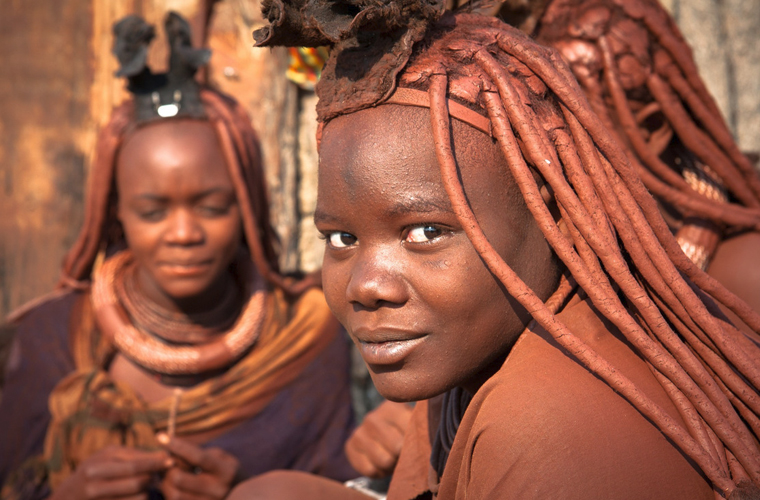The Herero people are an ethnic group primarily inhabiting the countries of Namibia, Botswana, and Angola. They are known for their distinctive culture, language, and traditional attire, which includes colorful, elaborate dresses for women and military-style uniforms for men. The Herero people have a rich history that dates back centuries, with their origins believed to be in the Great Lakes region of central Africa. Over time, they migrated southwards, eventually settling in the present-day areas of Namibia and Botswana.
One of the most notable aspects of Herero culture is their traditional dress, which is a symbol of pride and identity for the community. The women wear long, voluminous dresses with petticoats, often adorned with intricate patterns and vibrant colors. The dresses are complemented by headdresses that resemble cattle horns, symbolizing the importance of cattle to the Herero people. In contrast, the men wear military-style uniforms with wide-brimmed hats, reflecting the influence of German colonialism in the region during the late 19th and early 20th centuries. This unique attire has become a defining feature of Herero identity and is worn with great pride during cultural events and ceremonies.
The Herero people are also known for their language, Otjiherero, which is a Bantu language spoken by the majority of the population in Namibia. It is an important part of their cultural heritage and is used in everyday communication, as well as in traditional songs and storytelling. In addition to their distinctive culture and traditions, the Herero people have faced significant challenges throughout history. During the late 19th century, they experienced colonization by German forces, leading to land dispossession, forced labor, and other injustices. This period of colonial rule had a lasting impact on the Herero community and continues to shape their experiences today.
One of the most tragic events in Herero history is the Herero and Namaqua genocide, which took place between 1904 and 1908 under German colonial rule. During this time, thousands of Herero people were killed, and many others were subjected to forced labor and internment in concentration camps. The genocide had a devastating impact on the Herero population, leading to a significant decline in numbers and profound trauma that continues to be felt by the community. Despite these historical challenges, the Herero people have shown remarkable resilience and continue to preserve their cultural heritage. They actively participate in traditional ceremonies, such as weddings and initiation rites, which play a crucial role in maintaining their customs and passing them on to future generations.
In recent years, efforts have been made to address the historical injustices faced by the Herero people. Calls for reparations and acknowledgment of the genocide have gained momentum, both within Namibia and on the international stage. These efforts seek to provide recognition and redress for the enduring impact of colonialism on the Herero community. Today, the Herero people continue to assert their cultural identity and maintain a strong sense of community. They actively engage in initiatives to promote education, economic empowerment, and political representation, seeking to shape a more equitable future for themselves and their descendants.
As a vibrant and resilient ethnic group, the Herero people stand as a testament to the enduring strength of cultural heritage in the face of adversity. Their unique traditions, language, and dress serve as a powerful expression of identity and pride, reflecting a rich history that continues to shape their lives today.


